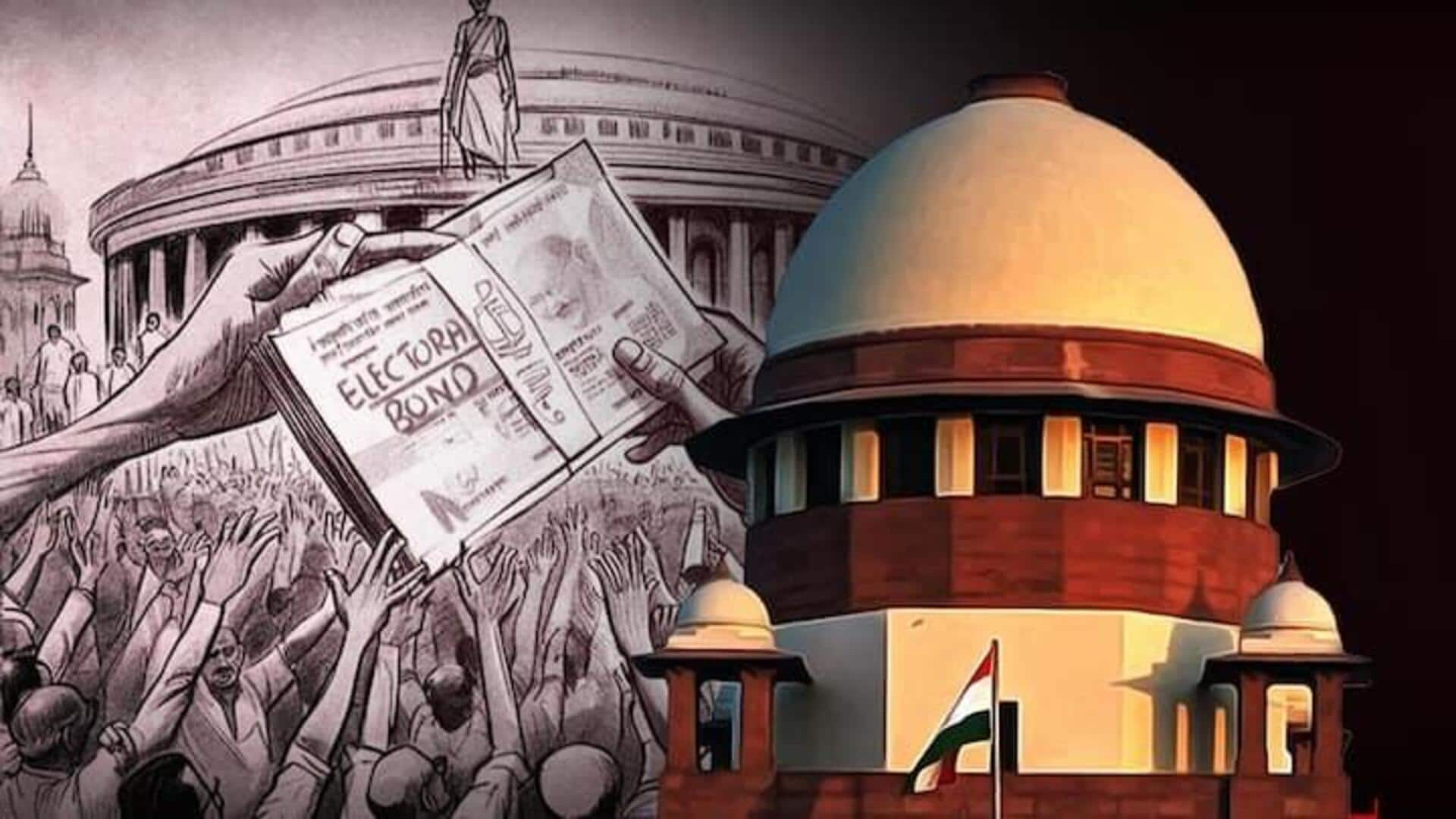
Supreme Court rejects pleas seeking probe into electoral bond misuse
What's the story
The Supreme Court on Friday dismissed a series of petitions seeking a Special Investigation Team (SIT) probe into alleged misuse of electoral bonds by political parties.
The bench, comprising Chief Justice of India (CJI) DY Chandrachud, Justices JB Pardiwala and Manoj Misra, declined to exercise jurisdiction under Article 32 of the Constitution.
The court noted that at the time of the purchase of electoral bonds, a statutory enactment by parliament permitted such purchase and donation.
Legal framework
Court notes legal permission for electoral bonds purchase
The petitions, in particular, sought an investigation into allegations of quid pro quo arrangements between donors and political parties.
However, the bench noted that at this point, the petitions were based only on the notion that there was a quid pro quo behind donations to political parties.
"We have highlighted underlying premise of submissions to indicate that these are assumptions at the present stage and would require court to enter into roving inquiry into purchase of electoral bonds," it added.
Legal recourse
Court advises pursuit of remedies under law
The bench further clarified that individual grievances should be pursued through appropriate remedies under the law.
It stated that without recourse to remedies available under law, it would be premature and inappropriate for the court to intervene as an Article 32 plea must be preceded by normal remedies under the law.
The court also noted that probing proceeds of crime or reopening income tax assessments would infringe upon statutory functions of authorities entrusted with such inquiries.
Petition details
What did the petitions say
One petition was filed jointly by Common Cause and Centre for Public Interest Litigation, both registered societies.
They argued that an SIT probe was necessary to unravel alleged conspiracies and scams carried out through the electoral bonds scheme, which allowed anonymous donations to political parties.
Another petition sought confiscation of all money collected by political parties under the electoral bonds scheme of 2018.
Scheme
Supreme Court struck down scheme in February
In February, rhe Supreme Court struck down the Electoral Bonds Scheme (EBS) for political funding, saying that it violated the citizens' right to information.
The scheme is unconstitutional and may lead to a "quid pro quo arrangement" between political parties and donors, CJI Chandrachud had said in the judgment.
"Political contributions give a seat at the table to the contributor... this access also translates into influence over policy-making," Chandrachud had added.